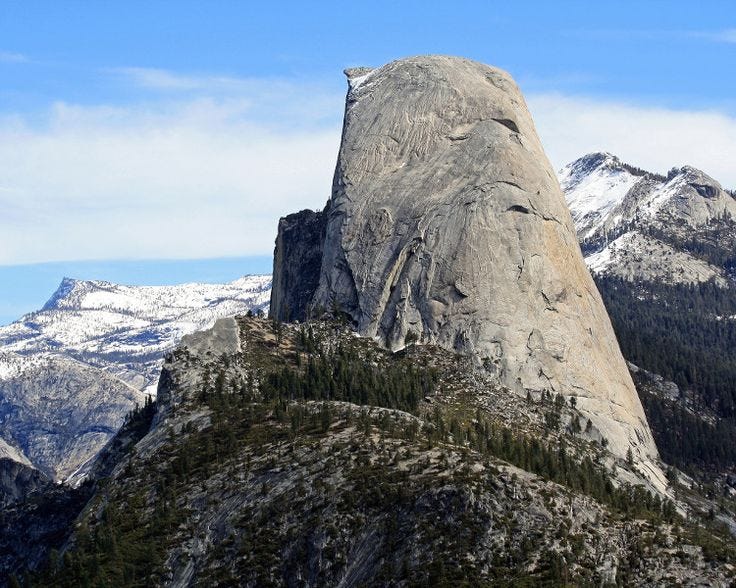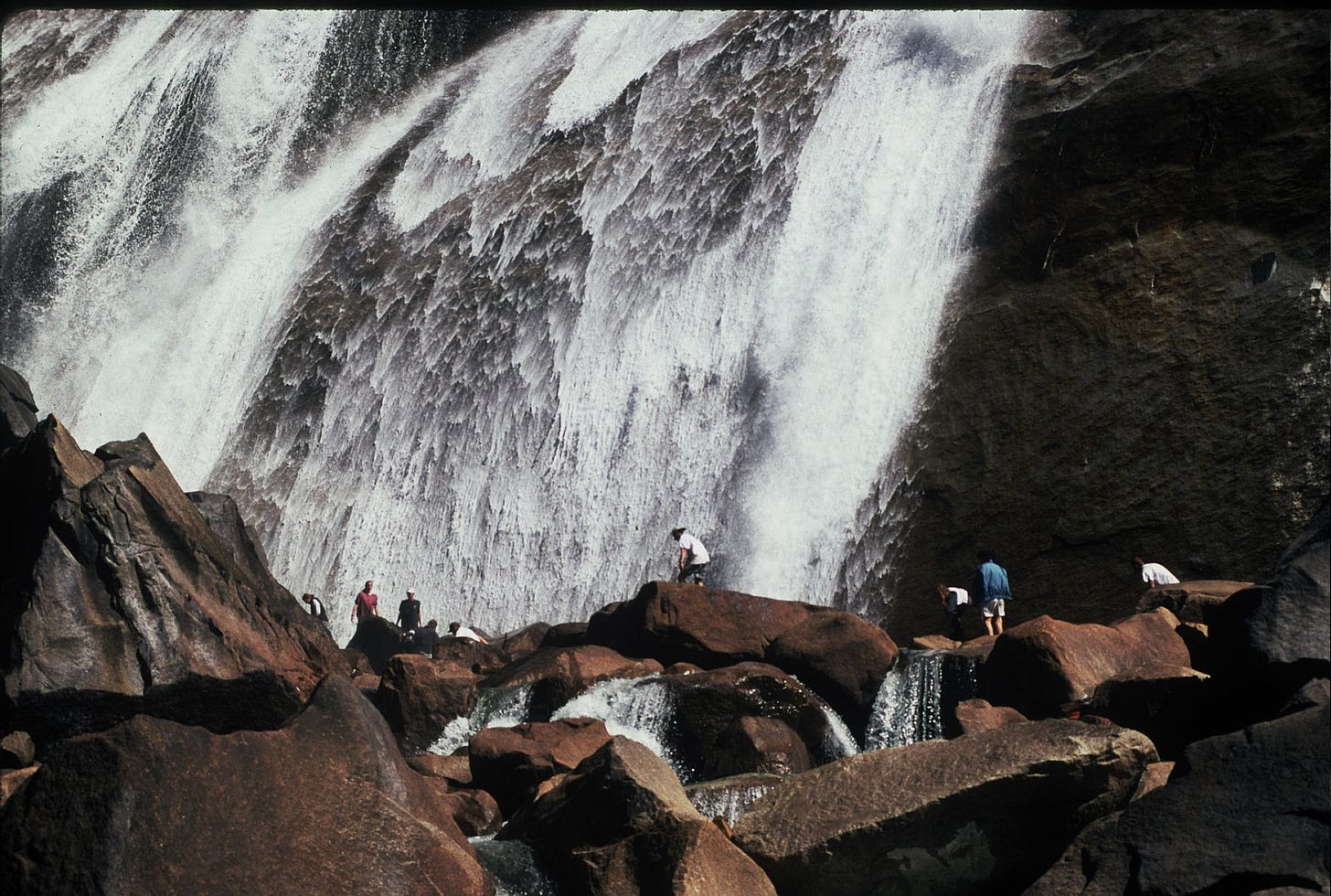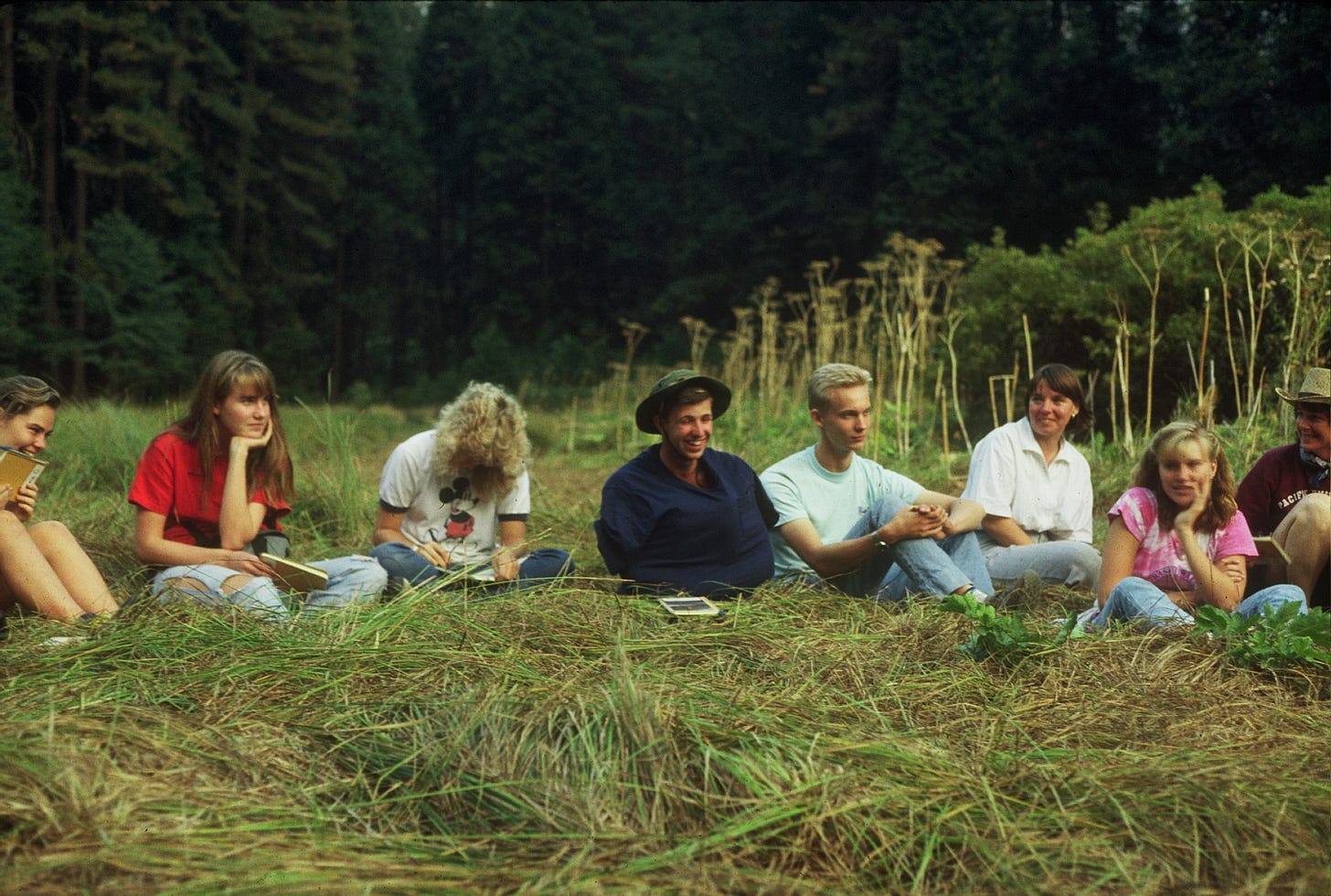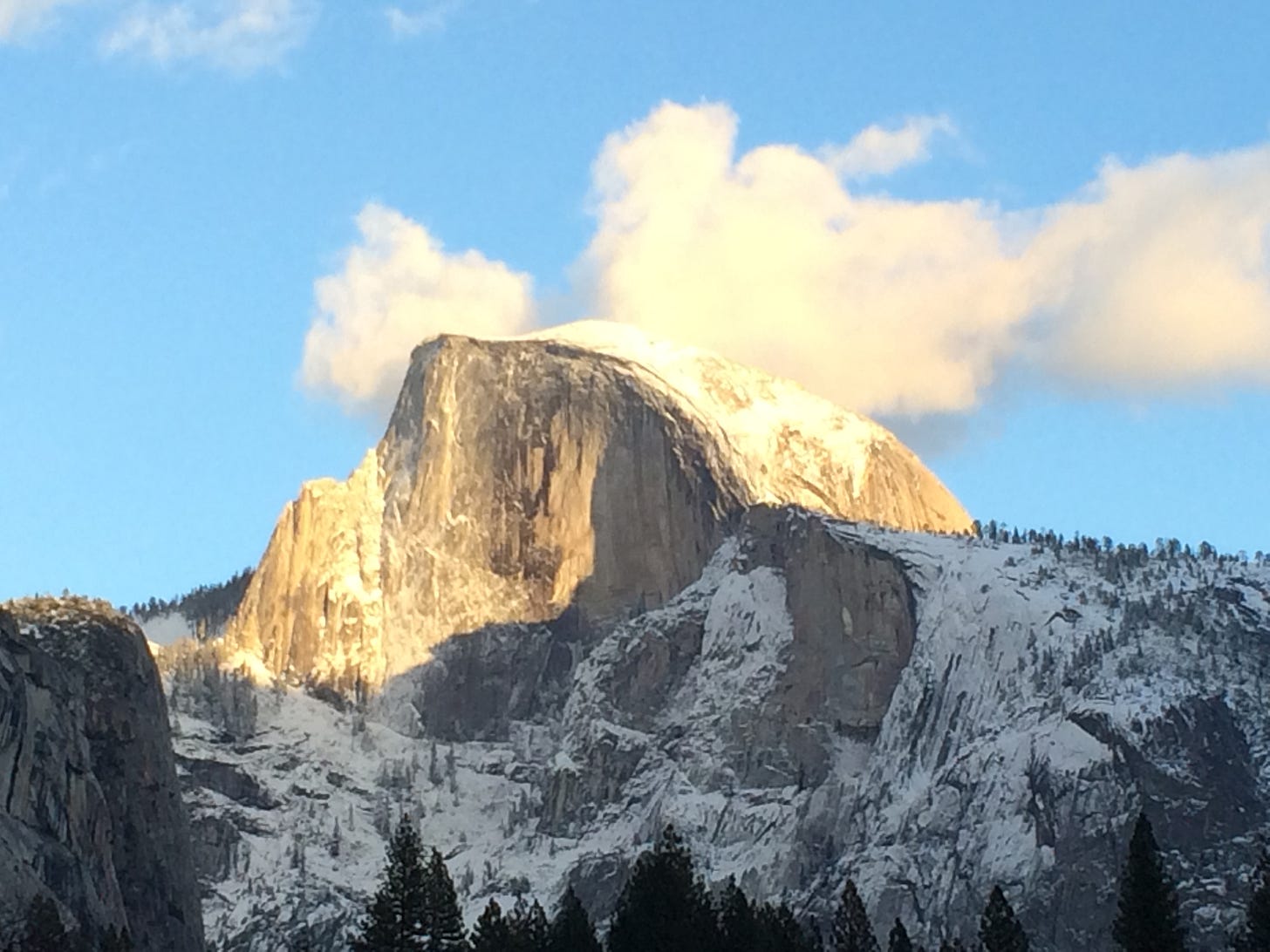Chip: a paragon of courage
By Lowell Young
ST HELENA, Calif. — One warm spring afternoon when school was over for the day, I was in the classroom grading exams when I heard the familiar whine of an electric-powered wheelchair approaching. I knew who it was and what he was going to ask.
The chair hummed into the room, bearing its broadly smiling occupant, Chip, a junior in my beginning biology course. Known for his sharp mind and intense curiosity, Chip faced unimaginable challenges due to Duchenne muscular dystrophy, a genetic disorder marked by the loss of crucial segments of a gene on the X chromosome.
Chip had lost all of his appendicular motor skills except for the ability to move his right hand and forearm. Despite needing assistance for some activities, he was fiercely independent, adeptly managing many daily tasks by operating his wheelchair with a small joystick controlled by his thumb and index finger. He was economical with his words and got straight to the point.
“Mr. Young,” he said, “I would like to enroll in next year’s Biodesign class.”
Even knowing what he was going to say, I was still unprepared to hear it and didn’t know how to respond. Chip thoughtfully read the panic in my face and allowed me the time to recover my senses. After an anxious moment, I was able to respond.
“Chip,” I said, “you have seen the slide shows that chronicle the trips. I am guessing that 90% of the Yosemite trip experience occurs on the hiking trails, including a cable-assisted ascent up to the top of Half Dome. I have no idea of how to solve that challenge.”
Though I didn’t realize it at the time, he was about to deliver one of the greatest learning moments I would ever experience.
“So you think I can’t handle disappointment,” he said, smiling. “I am physically challenged, but I am not dumb or naïve. Of course I realize that the trips focus on the hikes, which I will not be able to do. However, I have learned that 10% of something is 10 times greater than nothing. And who knows, maybe 10% for me will equal 90% for someone who can walk. Furthermore, I have done some research and found out that there are more than 30 miles of wheelchair-accessible trails that Noah (his nurse/aide) and I could take. There are nightly campfires at Curry Village and daily guided walks and ranger/naturalist talks. Who knows? I might learn more than you guys. I could participate in the first circle you are certain to have, attend the first campfire ceremony and sleep in a tent.
“Mr. Young, I promise I won’t be a burden to you, and I am certainly not looking for sympathy. It’s just that my doctor’s prognosis is that I will probably not live much beyond 22 years. Watching the slide shows and listening to your stories from previous years’ trips made my heart jump for joy. I knew I was taking a big risk by coming here to ask for permission, but I figured the worst you could do was say no, and I could handle that.”
I was so utterly overwhelmed by Chip’s courage, honesty and wisdom that I nearly wept. I felt embarrassed, but I knew that if I fell apart, I would embarrass him. Finally I spoke.
“Chip, I had to quit the high school baseball team because I could not hit a curveball. You threw a curve at me, and although it frightened me, you have given me a clue as to how to handle it. You obviously have done your homework, and your plan is brilliant. I am certain the class will welcome you with open arms.”
Chip graciously thanked me, hung a U-turn in his chair and motored out of the room.
I hadn’t mentioned our conversation to the students, but the next morning out on the quad Chip was the hot topic of conversation. The students were surprised to learn that he would become a member of next year’s Bioidesign class.
On the first day of school the following fall, the students, who consistently demonstrated openness, love and compassion, entered the classroom. Their first stop was Chip's wheelchair, where they gave him a welcoming hug.
Before each trip I commented to the students, “If you want to find out what kind of friend you have, take him/her camping and you’ll see.” This adage became profoundly prophetic in Chip’s case.
During the six-week, pre-Yosemite-trip preparation period, Chip’s classmates were presented with a plethora of emotional responses to process. However, over and over we were awed by his indomitable spirit that empowered him to be able to confront the rigors of his dreaded DMD with grace and magnanimity.
Arriving in Yosemite Valley, we quickly set up camp and then took a short walk to a nearby meadow for our inaugural gathering. There we formed a circle, joined hands and talked about the days ahead.
Each class — and trip — was distinctive, but that year I decided to incorporate a portion of an interview with Emmett Kelly, arguably the world’s greatest clown.
“What’s the hardest thing in the world to be?” Kelly said. “I can tell you in one word: yourself. Especially if what you are is different from the crowd. But I’ll guarantee this: If you can find the courage to be yourself, to be the person God intended you to be, you are going to come out all right.”
Now, as we stood under the watchful eye of Yosemite’s world-famous Half Dome, many of his classmates struggled with conflicting feelings of joy, sorrow and guilt that they would soon be climbing the famous rock and Chip would be left, wheelchair-bound, in the valley below.
I glanced over at Chip, and the look I saw on his face simply defied description. I could only hope that in his imagination for one ecstatic moment he was freed from the gravitational bondage of his wheelchair.
Adhering to his plan, he brought along a lightweight wheelchair and students playfully jostled for the privilege of pushing him along ADA trails. Chip told me he felt pampered.
That evening we could not have known that our normally simple routine of pre-bedtime preparation would reveal a glimpse of his attitude about his fragile life.
Preparing for bed, Noah patiently and lovingly began Chip’s routine with a trip to the ADA-friendly restroom for Chip’s sanitary needs. Then it was back to camp, and Noah carefully brushed Chip’s teeth. Chip laughed at the difficulty of spitting the foamy paste out. Then it was time for a warm sponge bath, which produced peals of laughter. His classmates were torn between wanting to watch but also not wanting to invade Chip’s privacy. When Noah retrieved Chip’s pajamas, the students quickly returned to the campfire. Noah had amazing strength and skills to be able to guide Chip into his flannel pajamas and then gently wrestle him into his sleeping bag.
With his tasks completed, Noah joined the fire ring, and the class shouted a resounding, “Good night, Chip!” He responded with a joyous “Thank you” from his tent.
At daybreak, Chip and Noah cheered us off as the class embarked on a three-day, 24-mile round-trip hike with a demanding 5,000-foot gain in elevation. The hike took on a whole new feeling for each hiker who remembered Chip back at base camp, unable to take a single step. We felt like we were carrying his spirit to the top of Half Dome.
After returning home, students were given two weeks to process their adventure and compose an expository essay describing what they saw, heard, touched, tasted and smelled.
The students had established a goal of excellence for their post-trip papers. Chip understood this, perhaps better than any student before or after him. His reflections of celebrating life, nature and the importance of camaraderie were crystal clear and amazed us. Even so, he stunned us when he invoked John Muir:
“On no subject are our ideas more warped and pitiable than on death. Instead of sympathy, the friendly union of life and death so apparent in Nature, we are taught that death is an accident, a deplorable punishment for the oldest sin, the archenemy of life, etc. Town children, especially, are steeped in this death-orthodoxy, for the natural beauties of death are seldom seen or taught in towns ... But let the children walk with Nature, let them see the beautiful blendings and communions of death and life, their joyous inseparable unity, as taught in woods and meadows, plains and mountains and streams of our blessed star and they will learn that death is stingless indeed and as beautiful as life and the grave has no victory, for it never fights. All is divine harmony.”
He continued, “I signed up for the class because I thought it would be fun; I had no idea that it would help prepare me to face the end of my life. Such great feelings of happiness, goodness and love have filled my heart and warmed my soul. John Denver’s song, “Love Is Everywhere,” was right on. Love was everywhere at Yosemite. It was there in the cheers, tears, laughter, hugs, songs and metaphors. I saw it, heard it, touched it and felt it. You guys have not only helped me prepare for dying, but you have also encouraged me to make every living minute count.”
The group was emotionally drained yet erupted with thunderous applause as they gave him the only standing ovation in the history of the class. Understandably, no one wanted to follow his presentation, so we quietly reflected and tried to absorb some of his wisdom and wonderful lines.
After Chip graduated, he moved to UC Berkeley and into an independent-living complex that offered assistance in mornings and evenings. He motored his chair up and down the hilly sidewalks of the campus to attend classes. Several times his chair slipped off curbs that did not yet conform to disability ordinances and dumped him on the street. He was greatly appreciative of passersby who were both thoughtful and strong enough to right his chair and get him safely repositioned.
The doctors were right, however. Chip died at the age of 22. A week or so later, his mom called to see if I would speak at his funeral. It was an odd thing — for someone who made a living by talking in front of people, I was very uncomfortable speaking before nonstudent groups. Even so, it was a huge honor to share some of Chip’s qualities, lessons and reflections.
His celebration of life was followed by a luncheon at the ranch where he lived. Many of his friends from “Cal” were driven 60 miles north to St. Helena. Some were in various states of decline, yet all possessed an amazingly optimistic attitude. Their conversations were terse, pinpoint accurate and revealed stunning clarity, as if saying, “I may not have much more time, so let’s focus on what’s really important.”
The next morning I sat at the desk in my office with tears streaming down my cheeks. Then I looked up at the Crystal Gayle poster on the wall that read:
“Smile if it kills you
Find some kind little things to say
'Cause there is no doubt when you sort it all out
It's too good to throw away.”
I took that to be a message from Chip and managed a painful smile. Then I decided to follow the advice and celebrate the new day.
If today's story captured your interest, explore these related articles:
Black Sears family donates land to help create wildlife corridor
Echoes of wisdom: The enduring legacy of Napa Valley's inspirational educators
Lowell Young is a retired educator and naturalist living in St. Helena.








Thank you Lowell for sharing Chip's courageous story...and what a gift for Chip to become your teacher. Thank you for introducing students...and chaperones...to the wonders of the great outdioors: Yosemite, Grand Canyon, and Mendocino. Love your book, Biodesing Out For A Walk!!!
Such a beautiful article about a beautiful soul. Lovingly written. Thank you for that gift.💕